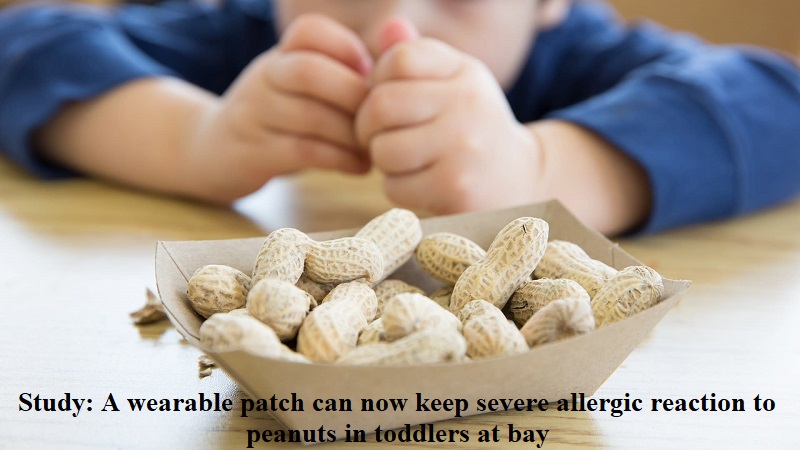
A new wearable patch has been developed to help prevent severe allergic reactions to peanuts in toddlers, according to a clinical trial. Over 200 children aged between one and three with peanut allergies participated in the late-stage trial, and after applying the experimental patch for more than 22 hours a day for a year, 67% of the children were able to tolerate 300 to 1,000 milligrams of peanut protein, the equivalent of one to four peanut kernels. The findings were published in the New England Journal of Medicine.
The patch, manufactured by biopharmaceutical firm DBV Technologies and called Viaskin, contains a small dose of peanut protein equal to about 1/1,000th of a peanut kernel.
A new patch is applied every day and worn between the shoulder blades, allowing the skin to absorb the protein. Immune cells then carry the protein to different parts of the body, helping to subdue the allergic response.
The study’s lead author, Dr. Matthew Greenhawt, said that the nature of the reaction had changed in the children as a result of the patch, with a decrease in the number of severe reactions. Palforzia, a powder that may be combined with food and is intended to reduce the chance of severe allergic responses in children, has been authorised by the US Food and Drug Administration for children aged four to 17.
However, there are currently no approved treatments for children under four with peanut allergies, and Viaskin is the first non-oral option for this age category to be studied.
Dr. Pharis Mohideen, Chief Medical Officer of DBV Technologies, said that the aim of Viaskin was to build a protective layer for children, so that accidental peanut exposure would not result in a reaction, or if it did, that reaction would be mild and not require a visit to the emergency room.
Mohideen stated that getting children to the point where they could tolerate several peanut kernels would be “absolutely life-changing” and would alleviate parents’ concerns about taking their children to restaurants or on planes.
Peanut allergies affect around one in every 50 children in the US, and the frequency of peanut allergies in the country has increased over the last two decades. While the causes for the development of peanut allergies are unclear, up to 20% of people are affected, and some people’s allergies increase over time.

Post Your Comments